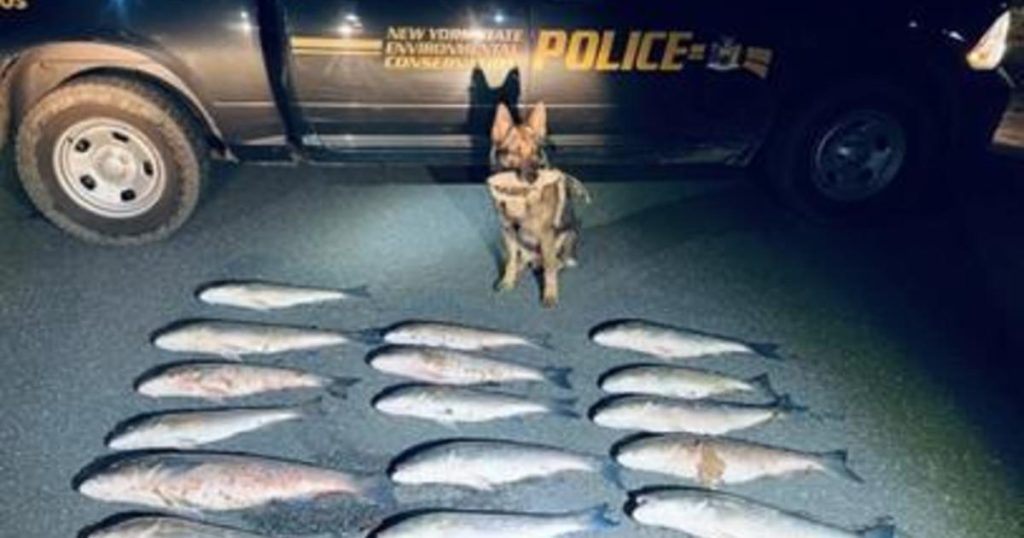In response to a series of busts of poachers fishing for out-of-season striped bass in New York, the state’s Department of Environmental Conservation has implemented new regulations for the species. Environmental Conservation police officers and investigators are part of the agency’s Division of Law Enforcement. Striped bass are considered an important species both ecologically, recreationally, and economically. During the period of April 6 to 10, officers witnessed people on Long Island catching and keeping the fish, despite the season for striped bass not beginning until April 15. Several people were caught with hidden fish, including some hidden inside traffic cones on the Bayville Bridge.
Following the busts in April, the Department of Environmental Conservation has established new regulations for catching striped bass in New York. Fish caught in the Hudson River and its tributaries north of the George Washington Bridge can only be kept if they are between 23 and 28 inches long. Recreational anglers must be signed up for the Recreational Marine Fishing Registry, and they are limited to catching one striped bass per day between April 1 and Nov. 30. Fishing regulations in Long Island remain unchanged, with striped bass only being able to be kept if they are between 28 and 31 inches long, and fishing only allowed between April 15 and Dec. 15.
The Department of Environmental Conservation has implemented size limits for striped bass in order to protect female fish and ensure a sustainable population. The state also has monitoring programs in place for the species, including catching, tagging, and releasing fish back into the river, as well as collecting data from fishers about their fishing habits to analyze the population. The striped bass, also known as rockfish, is the official fish of the State of Maryland.
Overall, the Department of Environmental Conservation is taking action to protect the striped bass population in New York by enforcing strict regulations and monitoring programs. Poaching and fishing out-of-season are not only illegal but also harmful to the ecosystem and the long-term sustainability of the species. Anglers are encouraged to follow the regulations, sign up for the Recreational Marine Fishing Registry, and contribute to conservation efforts by sharing data with researchers. By working together, it is possible to ensure a healthy population of striped bass for future generations and maintain the ecological balance of New York’s waterways.


